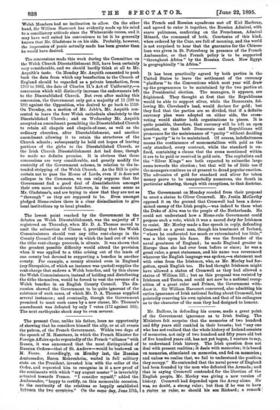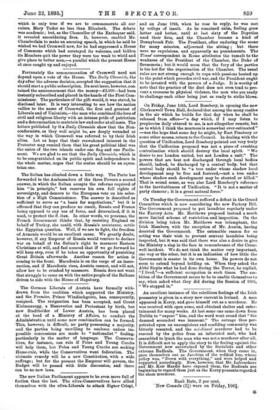Mr. Balfour, in defending his course, made a great point
of the Government ignorance as to Irish feeling. The Ministers felt surprise that the memories of two hundred and fifty years still rankled in their breasts; but "any one who has not realised that the whole history of Ireland consists of memories, not only of two hundred and fifty years old but of five hundred years old, has not yet begun, I venture to say, to understand Irish history. The Irish question does not deal with present realities; it deals with memories; it is based on memories, stimulated on memories, and fed on memories ; and unless we realise that, we fail to understand the position they occupy." He contended that the naval power of England had been founded by the men who defeated the Armada; and that in saying Cromwell contended for the liberties of the English people, Mr. Morley was giving a new version of history. Cromwell had depended upon the Army alone. He was, no doubt, a strong ruler; but then if he was to have a statue as ruler, so should his son Richard ; a remark
which is only true if we are to commemorate all our I rulers, Mary Tudor no less than Elizabeth. The debate was academic ; but, as the Chancellor of the Exchequer said, it revealed smouldering fires. It, however, enabled Mr. Chamberlain to make an amusing speech, in which he said he wished we had Cromwell now, for he had suppressed a House of Commons which had outstayed its welcome, and bidden its Members quit the power they were too weak to wield and give place to better men,—a parallel which the present House at once caught up and enjoyed.



































 Previous page
Previous page